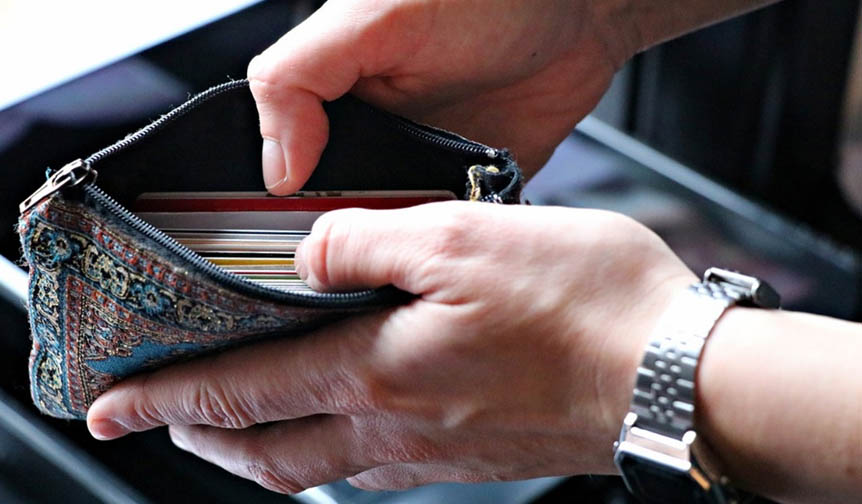Our Guide to All You Need to Know on Saving Money as a Student!


| Article writen by: Abby | 20 July 2023 |
Hello there! I'm a student at Leicester University, currently staying at Student Beehive's Regent Road studio flat. Known for its vibrant environment and impressive Leicester Uni accommodation, Student Beehive is a haven for students. But like every student, I've got my financial hurdles to jump. So, here's a friendly guide from yours truly on how to save money as a student.
-
Tips to Save Money: Setting Realistic Savings Goals
My first tips for you revolve around setting realistic savings goals. Think about the big things you want in life, like a trip abroad or even your first mortgage. Then, create a roadmap on how you'll get there. A little goes a long way and even small savings can build a significant savings pot over time. And remember, don't just let that money sit in a regular bank account, find an interest savings account to get some free money! I want to start with some foundational advice.
The first step to effective money management is setting realistic, measurable savings goals. Start by envisioning the significant things you aspire to accomplish in life. It could be exploring the world on an epic trip abroad, buying your first car, or even setting the groundwork for your first mortgage for your dream home. Once you've got that, break down this big picture into achievable mini-goals. This can create a clear and less daunting roadmap to financial success.
And don't underestimate the power of small but consistent savings. A few pounds here and there might not seem like a lot, but over time, it can accumulate into a considerable savings pot that brings you closer to your goals.
-
Top Tips on Budgeting and Money Management
Budgeting is key to saving money and managing finances. It's important to keep track of income, spending and costs, and there are tons of budgeting apps to help with that. I personally use Moneybox because it allows me to set budgets and keep track of my spending habits. If you can see where your cash is going, it's easier to cut costs.
Budgeting truly is the cornerstone of any successful financial plan. This critical practice allows you to save money effectively and manage your finances with precision. It involves keeping a detailed account of your income - be it student loans, part-time job earnings, or family support - and carefully monitoring your spending and costs.
Luckily, we live in a digital era where technology can significantly simplify this process. There's a wealth of budgeting apps available that make managing your finances a breeze. My personal favourite is Moneybox. This app not only lets me set a specific budget, but it also enables me to track my spending habits down to the last penny.

-
Money Saving Tips: Groceries and Food Costs
Food can be a big chunk of your budget. My money saving tips? Buy groceries in bulk, batch cook, and plan meals ahead of time. Batch cooking my favorite, butter chicken satay curry, allows me to prepare several meals and save money on food. I even manage to spend less on food by using my healthy start vouchers at the supermarket. Trust me, meal planning is a lifesaver and it’s an easy way to slash food bills.
Food, while absolutely essential, can indeed gobble up a substantial part of your budget if not managed mindfully. Here are some student money saving tips gleaned from my personal experience in the culinary department. Buying groceries in bulk can result in significant savings, particularly for items that have a long shelf life. Bulk purchases can offer better value for money and reduce the number of trips you need to make to the supermarket, thereby saving you both time and transport costs.
-
Student Money Saving Tips: Discounts, Cashback, and Freebies
My student money saving tips involve making the most of the perks available to students. Leicester student studios often come with discount vouchers for local businesses, so make use of them! Sign up for a cashback credit card, and use cashback websites when shopping online. Remember, every little helps.
As a student, we are privy to a myriad of perks and discounts that can aid us significantly in our money-saving endeavours. My advice? Make the most out of these benefits! Often, Leicester student studios, like the Student Beehive, collaborate with local businesses to offer their student residents exclusive discount vouchers. So whether it's for dining, entertainment, or even local gym memberships, make sure you take full advantage of these offers.
Another smart move is to sign up for a cashback credit card. Now, this isn't an invitation to spend recklessly, but rather a way to earn a little back on necessary purchases. Remember to pay off your credit card debt in full each month to avoid interest and keep your credit score in check.
-
Saving Money on Households Bills: Energy and Other Costs
Staying at home means dealing with energy bills. To save money on household bills, turn off unnecessary lights and unplug devices when not in use. These simple tips can help reduce energy costs, and you can stash that saved cash in your savings account. When it comes to being a home-based student, energy bills are an inevitable part of the equation. But don't worry, there are some simple tips to help you conserve energy and save money on these household bills.
Make it a habit to turn off lights when they're not needed - in the daytime, make the most of natural light, and remember to switch off before you leave a room. Also, ensure you unplug devices when they're not in use. It's a common misconception that devices don't use energy when they're switched off, but many continue to draw power even when they're not in use, especially if they're left plugged in.

-
Finding New Revenue Streams
You can save more money by creating new revenue streams. I started a small online business selling second-hand items. It’s not a massive paycheck, but it helps. You could also look into part-time jobs that fit around your studies. Another excellent strategy to bolster your savings is by creating new revenue streams. Now, this may sound intimidating, but it's all about finding opportunities to make a bit of extra cash on the side. Personally, I set up a small online business where I sell pre-loved items. It's a fantastic way to declutter and make some money out of things I no longer need or use. It may not be a huge paycheck, but trust me, every bit helps when you're a student.
Another avenue to consider is part-time jobs that can fit around your academic schedule. This could be anything from on-campus jobs, retail work, tutoring, or even freelance gigs if you have a particular skill like writing, graphic design, or coding. These jobs not only provide a steady stream of income but also offer valuable experience that could be beneficial in your future career.
-
Goodbye to Debt: Managing Credit Card and Bank Overdrafts
Managing debt is crucial to saving money. Try to avoid expensive credit card debt by paying off balances in full each month. Also, consider using a bank account that offers a free overdraft for students. It's one of the best ways to avoid unnecessary interest on debt.
Managing debt is indeed an essential aspect of effective money saving, and it's something that can't be overlooked. One of the most common sources of debt among students is credit card debt, which can quickly become expensive if not handled properly.
My tip for this is to always strive to pay off your credit card balances in full each month. By doing so, you can avoid the hefty interest charges that can accrue when you only make minimum payments. It's a simple yet powerful way to keep your debt under control and prevent it from eating into your savings.
-
Saving for the Future: Retirement Savings Plan
I know, retirement seems a long way off, but setting up a retirement savings plan early is one of the most effective ways to build wealth over time. Even a small amount each month can add up over the years. Consider this: if you start saving just a little each month from your student days, you’ll be way ahead of the game by the time you start your professional career. It's not about the amount you start with, but rather the habit of saving for the future that really matters. Remember, the best time to start saving for retirement was yesterday. The second best time? Today. It's one of those things that you'll thank yourself for in the long run.

-
Creating an Emergency Fund
Life can throw us unexpected things, so it's important to have an emergency fund. This can cover costs like rent or any unforeseen emergencies without having to resort to costly credit card debt. Absolutely, life has a knack for throwing us curveballs when we least expect them, so having an emergency fund is crucial. This is a pool of savings specifically set aside to cover sudden or unexpected costs. It could be anything from urgent car repairs to a sudden hike in rent, or even unforeseen medical emergencies.
Having an emergency fund provides a financial safety net that can prevent you from falling into costly credit card debt. It's essentially a buffer between you and life's unexpected expenses. And remember, it's not about the size of the fund when you're starting off, but about consistently contributing to it. Even small regular contributions can make a big difference over time. Financial peace of mind is priceless, so start building your emergency fund today!

-
Practising a Financial Fast: Spending Freeze
A spending freeze or financial fast involves spending no money for a set period. It's a great way to save cash and recalibrate spending habits. I usually have a no-spend day once a week.
Absolutely right! A spending freeze, sometimes referred to as a financial fast, is a brilliant way to save cash and reassess your spending habits. This practice involves designating a set period, it could be a day, a week, or even a month, during which you commit to not spending any money except on absolute necessities.
Personally, I like to dedicate one day each week as my no-spend day. It's not only a great way to bolster my savings, but it also encourages me to get creative with the resources I already have. Whether it's making a meal with what's left in the pantry or finding free activities to occupy my time, a spending freeze can really put into perspective how much we can do with less. Plus, it's an excellent exercise in self-discipline and can do wonders in reshaping our relationship with money. So, why not give it a try? It might surprise you how much you can save!
In Conclusion
Managing money as a student doesn't have to be a headache. With these simple tips and a solid budgeting plan, you can avoid debt, save for the future, and even have a bit of fun along the way.
Remember, saving money doesn't mean giving up everything you love. It's about making smarter choices and finding the best ways to stretch your money further. After all, every little saving can help you achieve your financial goals.
So, whether you're like me, living in a Leicester Uni accommodation, or you're studying elsewhere, remember to use these tips to save money and enjoy the student life you've always dreamt of.
Happy saving, folks!
 中文
中文



